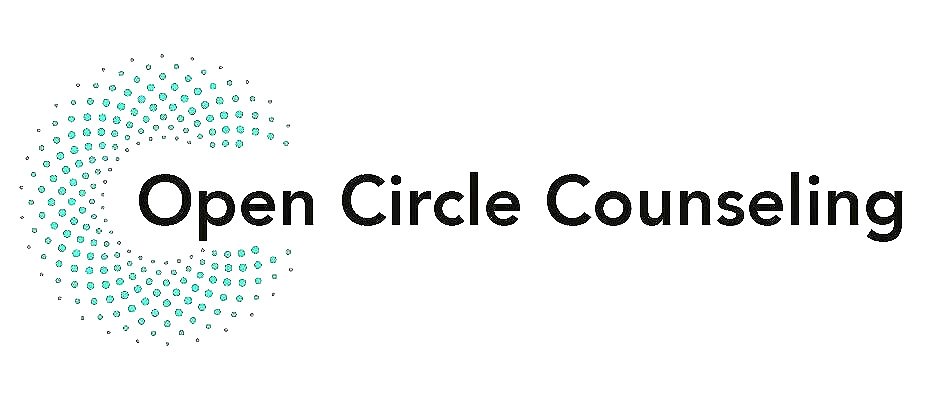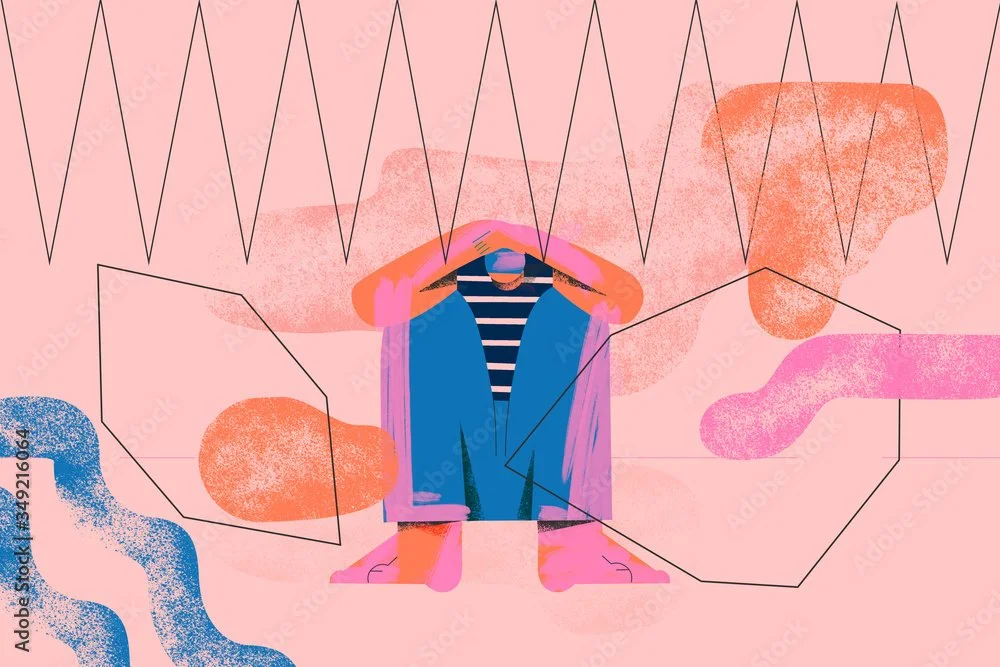are the high’s and Low’s becoming intolerable?
Do you feel you are at the mercy of intense mood swings? Do your ups of extreme (or kind of extreme) energy and downs of deep despair leave your mind, body, and spirit exhausted? Sometimes after we go through an intense mood event, it takes time for our brains, bodies, and spirits to recover. Going through not only depression, irritability, anger, and euphoria is draining—it is also not easy to go it alone.
Also feeling like so many people in your life don’t get it
Self stigmatize due to the greater stigma, ‘she’s acting so manic’ when she isn’t acting manic. That BP people are to be laughed at or seen as a hopelessly crazy. How about we are sweet, spicy, salty and everything in between?
Sometimes the struggle is really bad—
As if there’s not enough stigma, misunderstanding, and lack of education around bipolar and, more specifically bipolar II.
Has a never-ending cycle of up’s, down’s and everything in between gotten to another breaking point? Do you feel like your moods are running your life? So tired being depressed?
Maybe you’re in one of those longgggg stretches of depression, where getting out of bed, and not spending every minute of the day not hating yourself and thinking everything is hopeless is the success. Or perhaps you’re in a cycle of constant irritability, anxiety or having many many thoughts and ideas racing in your head. Or perhaps you have both—the rapid thoughts and the down energy. Maybe your sleep is terrible, your diet off,
As a result of all the emotional fluctuations, you may find yourself isolated, fearful of asking for help, tired of working so hard when things feel so hard. The lack of feeling stable has you drained and at yet another low point.
Hypomania—elevated, expansive, irritable mood
Mania—elevated, expansive, irritable mood
Depression
Ah a good day
What is my baseline?
BP II—at least one hypomanic epsiode and at least one major depressive episode. more and longer depression than bipolar with hypomania. Basically with BP II you can feel really low for quite a while, with small bursts of energy (or anxiety).
“We do not see things as they are, we see them as we are.” —Anais Nin
It’s even possible that your anxiety has escalated into full-blown panic. Maybe during moments of str.
Being open about my bi polar diagnosis hasn’t been easy. Barely anyone knows (until now!). I was diagnosed with bipolar II after having a manic episode when I started taking an anti depressant for the first time. It was fun at first—I thought, ‘wow I had no idea the meds would make me feel this good’. I felt so good and then I had so many great ideas, and then I couldn’t stop talking about them and then my body started feeling like it was vibrating on a high frequency, humming like an appliance. Then the thoughts wouldn’t turn out and started to sound like stronger voices. Eventually I became anxious, then angry then crashed into a depression. I would then cycle and have mixed episodes until I finally realized I needed help getting off the meds. Jan 2022 was when I was finally diagnosed as bipolar. This began a year and a half journey of moving towards stability.
You can outdistance that which is running after you, but you cannot outdistance that which is running inside you.
—African Proverb
To see takes time, like to have a friend takes time —Georgia O’Keefe
Diseases have no eyes. They pick with a dizzy finger anyone, just anyone—Sandra Cisneros,
The spectrum of bipolar symptoms (and the severity of the symptoms) is not just something that is affecting you in isolation—symptoms often manifest in ways that can impact your relationships, work, and daily functioning. And if you wish you could find more consistent stability, you are not alone. Bipolar I and II affect many people, and often people go undiagnosed for a long time, as certain levels of bipolar can be easy to misdiagnose as just depression.
Right now, your wish to find relief may seem unattainable, but you don’t have to confront your anxiety without help or guidance. Therapy can normalize your experience while giving you individualized tools for coping and distress regulation.
As A Society, We Are Maxed Out
Given the demands and standards we are expected to meet—between familial expectations and cultural ideas of success—it’s no wonder that anxiety has become a leading mental health issue in this country. In fact, in any given year, it is estimated that one in five adults will experience symptoms of an anxiety disorder.
A need to be perfect tends to lie at the root of many anxieties, indicating the gendered, cultural, and systemic expectations we are required to adhere to. This perfectionism remains evident among women, for example, who are often required to play the roles of both nurturer and laborer without ever complaining or asserting their needs.
And no matter our gender, we’re all subjected to the comparison culture that dominates our social media, alongside the sensationalistic and divisive news cycle that dominates our political climate. Between the threats of global warming, mass shootings, civil unrest, financial insecurity, and systemic racism, misogyny, xenophobia, homophobia, and transphobia on the horizon, many of us live in constant worry about what the future holds. It’s no surprise that, as a culture, we’re plagued by symptoms of anxiety.
Unfortunately, however, there are many systemic and cultural factors at play that reinforce our anxiety and keep us from seeing a pressing need for treatment. As a result, those of us struggling—especially if we identify as a member of a marginalized community—end up feeling like it’s just a normal facet of life to be fearful and hypervigilant all the time.
The truth is that we learn to be anxious from a young age. If we endured trauma or learned to use protective patterns of coping that kept us from feeling pain, it’s possible that we are now hurting—rather than protecting—ourselves. And because we feel such an intense need to appear to have it all together, we may reject the idea of therapeutic treatment for anxiety, continuing to hide behind the mask of the image we’re so desperately trying to project.
In therapy, however, you can learn exactly where your fears and worries originated as you work with an empathetic professional who can offer you customized tools for coping with anxiety.
Anxiety Treatment Can Help You Live A Better, More Self-Assured Life
In our chaotic and demanding world, you likely have few opportunities to slow down and reflect on what’s causing you distress. In therapy, though, you can learn to face unresolved pain, uncomfortable emotions, and distressing experiences in a nonjudgmental atmosphere and with the help of a compassionate professional who can empower you to get to the root of your anxiety.
Although phone consultations are optional, I always encourage new clients to set one up so that we can get a feel for one another before starting therapy. Once you decide to enroll in anxiety treatment at Open Circle Counseling, I will send you an intake form that will give me a sense of your history and presenting problems to prepare for our first session. And though I take a clinical and therapeutic approach to treatment, I aim to always keep our discussions conversational and empathetic so that we can foster a genuine, healing connection.
As you become familiarized with the treatment process, we will use mindfulness and relaxation techniques to clear your mind. Then, by utilizing behavioral approaches, such as Cognitive Behavioral Therapy (CBT) and Dialectical Behavior Therapy (DBT), we will gently challenge the worries and fears you struggle with as you gain a deeper understanding of how your thoughts, behaviors, and emotions are connected. These evidence-based methods will help to minimize your inner critic so that you can feel more self-assured and confident.
In addition to behavioral techniques, we may incorporate somatic (or body-based) approaches into anxiety treatment to help you develop greater awareness of what’s happening in your body when anxiety strikes. Expressive therapies can also be very helpful in unpacking large and difficult emotions. And I find that values exercises—in conjunction with holistic and clinical therapy—are effective in allowing clients to clarify their priorities, which, in turn, decreases symptoms of anxiety.
My ultimate goal as your therapist is to help you feel better on a consistent and long-term basis. Whether you need a cheerleader, guide, problem-solver, or simply a witness as you work to understand the root of your anxiety, I am prepared to tailor my approach and offer whatever it is that you need.
Having seen many clients make great strides in therapy as they work to understand and find relief, I’m convinced that you, too, can reduce your symptoms and lead a better life, free from anxiety. You don’t have to suffer in silence any longer, pretending everything is okay. It’s possible to take off that mask and remove yourself from the clutches of anxiety—and it all begins in counseling.
Perhaps you’ve considered counseling for anxiety, but you still have questions…
I’m concerned about the cost of anxiety treatment.
If you’re concerned about the cost of treatment for your anxiety, I encourage you to think about therapy as a long-term investment in yourself. Anxiety has already taken up so much of your mental, emotional, and maybe even physical capacity that you can free up if you just give therapy a chance.
Can I see you with my insurance?
I currently take certain insurances—I am paneled via a platform called Alma. However, I can only take a certain number of insurance clients. Once I am full, I then am only able to see clients who pay ‘out of pocket’-even if I am paneled via Alma with your insurance. Some clients are ok with this structure. They can submit to their insurance what is called a superbill for out of network services. Some clients say thanks—and continue to search for an in-network provider. Either way is fine!
If you are not interested in using your insurance for mental health services, or if you do not have an insurance that is covered by Alma, I would be considered ‘out of network’ and charge out of pocket. For more information you can check my FAQ page.
One of my primary reasons for working primarily as a private pay clinician is it allows me the flexibility to tailor treatments to meet your exact needs. Whereas insurance providers usually offer a blanket approach to anxiety treatment, I can individualize therapy in such a way that is likely to be more effective and demonstrate a higher quality of care than a therapist who is constricted by insurance requirements.
I’m afraid that if I open up about my anxiety in counseling, you will think I am silly, weak, or bad in some way.
Opening up to me does not make you bad or weak—it makes you courageous and strong. Anxiety is a completely human struggle. And I aim to create a nonjudgmental, healing space where you will feel heard, believed, and empowered. I will listen to your story with focus and compassion so that we can figure out ways to increase your self-esteem and decrease your worries.
You Can Learn To Quiet Your Concerns
If constant fear and worry are keeping you from feeling happy and fulfilled, treatment at Open Circle Counseling can help you get to the core of your anxiety and give you individualized tools for coping. To schedule a free, 20-minute consultation to see if we’re a good match, please contact me for more information.
Recent Posts




